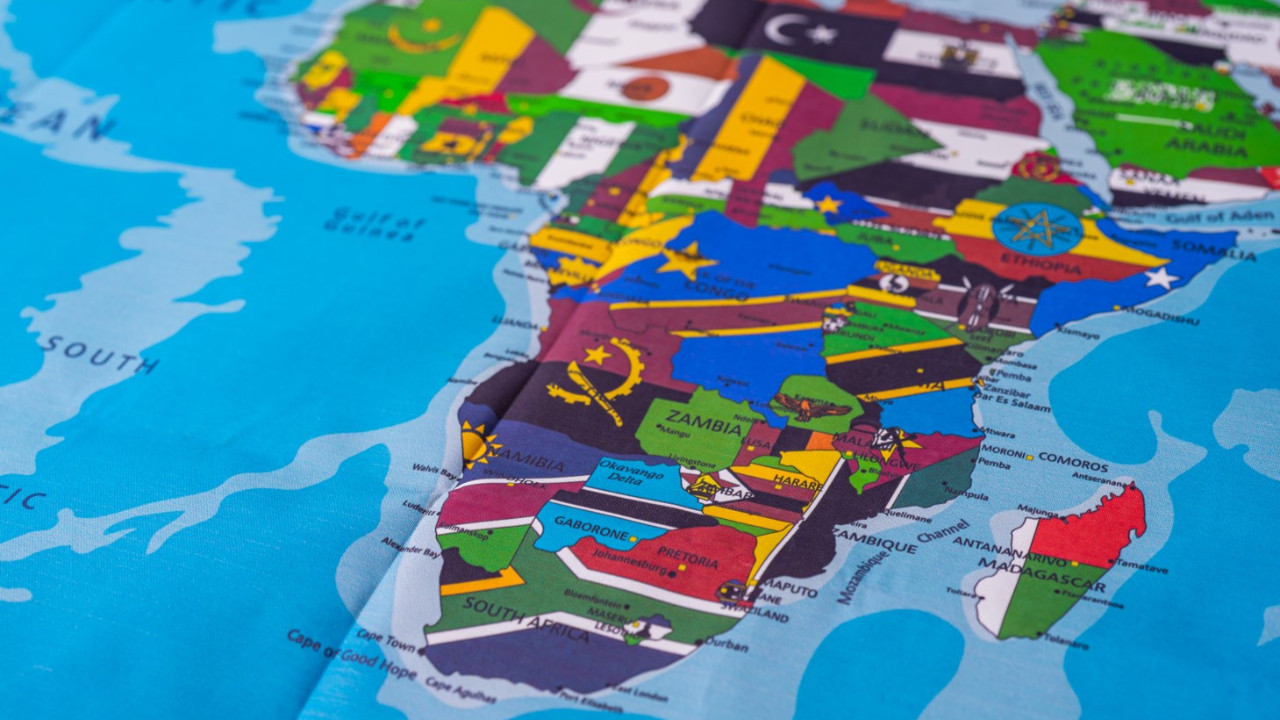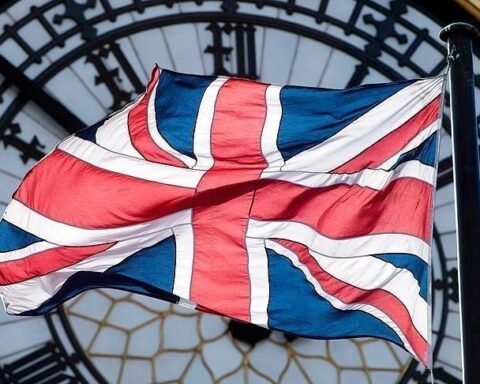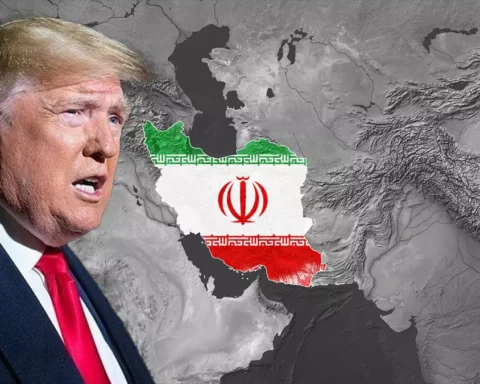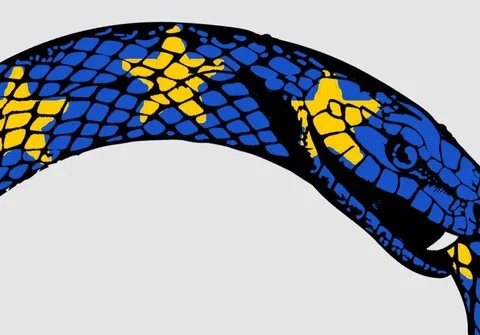Debt is an important source of finance for development. But if the debt situation turns burdensome and it may even threaten the very sovereignty of a nation. That’s what happening today with a majority of nations in Africa. I learnt how rich Africa is in mineral wealth from my students who come to study in our institution from different African nations. Africa is rich of mineral wealth but its people are very poor. Former Western colonial powers are chiefly responsible for the present state affairs. Even after liberation from colonial repression, the continent continues to struggle to develop and appears caught in a debt trap.
The continent is rich in natural resources, has abundant energy sources and the perfect tropical climate good for food production. Africa has roughly 30% of the world’s mineral reserves. It’s also home to many critical minerals that are essential for the global energy transition. According to United Nations Report titled World Economic Situation and Prospects (2024), the report noted that many African nations are spending up to 30 percent of their GDP on debt repayments in 2025. Unlike other mineral rich nations like Australia or Saudi Arabia, many African nations, are suffering chronic food insecurity and struggle to develop. Debt servicing is one of the principal causes that diverts African financial resources from development objectives. Over 60 per cent of African countries allocate more towards debt servicing than to critical sectors such as healthcare, education and infrastructure. Twenty low-income countries in Africa are in risk of debt distress. They owe US$ 685.5 billions to external creditors as of 2023, mostly to western financial institutions such as World Bank and IMF. African countries paid US$102.6 billion in external debt service in 2024. Incidentally, External debt owed by African countries is equivalent to 24.5% of their combined GDP in 2023.
Congo (DRC) and Nigeria are considered the richest countries in Africa largely due to their mineral exports and high GDP. Democratic Republic of the Congo (DRC) ranks among the richest countries in the world in mineral wealth, estimated at $24 Trillion. Yet African nations are among the poorest populations of the world. Nigeria, driven by its vast oil reserves (which account for a major part of its revenue), agricultural output, and rapidly growing tech sector. Now spends 96% of its federal government revenue on debt servicing. In the first nine months alone of 2023 alone, Nigerian government has the debt servicing bill was 66.9% of total revenue.
After two centuries of extraction of mineral wealth, forest and other resources, Britan, France, Belgium and other western colonial powers left Africa in a perilous conditions of human depravity. After independence to overcome backwardness and develop for funds these nations were forced to relay heavily on external debt. An important feature of post-independence is debt that is borrowed from overseas is mostly spent not on import of food and medicines but to finance infrastructure, industrial production to support export of minerals. Although bulk of mineral wealth is owned by western MNCs, strangely national governments are forced to shoulder this responsibility as per trade agreements to build road, rail and port infrastructure to facilitate mineral exports. However, in many cases, investments financed through debt have not generated a sufficient increase in output and export earnings to meet their debt obligations. With imbalance of prices between minerals exported and imported finished industrial engineered goods, biased terms of trade favouring western nations and rising interest rates, in the past decades many countries found themselves unable to finance their external debt, leading to a never ending debt crises.
For example in Nigeria there are six petroleum export terminals in the country with a total of 159 oil fields and 1481 wells in operation (Department of Petroleum Resources, Nigeria). Shell (UK) owns two, while Mobil, Chevron, Texaco, and Agip own one each. Yet unlike other oil producing nations, citizens in Nigeria do not get cheap fuel. There were wide spread protests in Nigeria against recent fuel price hike. A litre of petrol costs in Lagos N998 or 0.6 US dollar.
African nations borrow from a variety of international financial institutions, including the World Bank, the International Monetary Fund (IMF), and China. Unable to repay mountains of accumulated debt to the Western financial instituations during the last decade many African nations looked towards China for loans. China has provided large loans to African countries to develop ports and other infrastructure, which has raised concerns about “debt-trap diplomacy”. These include- to build the Mombasa–Nairobi Standard Gauge Railway and the Port of Mombasa (Kenya), Abuja-Kaduna railway line (Nigeria), Eastern Industrial Zone in Ethiopia and others. When Kenya reportedly came close to defaulting on these loans in 2018, China wanted transfer ownership of Mombasa port to it. Similarly, Djibouti, a tiny nation bordering Somalia defaulted payment of borrowed loan, China swiftly constructed a military base in horn of Africa, a strategic location now being operated by Peoples Liberation Army Navy. It is alleged that China uses debt-trap diplomacy to force countries to transfer resources and sovereignty to China. Thus British, American, French mining MNCs on one side and China on other side are actively involved in mineral extraction by throwing African nations in to a cycle of debts. As on December, 2024, Africa’s total external debt, totals more than $1.152 trillion by the end of last year (2024) and this continues to spiral.
Way out
Good governance ruling elite free from corruption and display of transparency of trade and debt agreements appears to be a viable alternative. However, in many African countries internal civil wars and military coups are a regular phenomena as observed during the last six decades. Interestingly local war lords who control the mineral rich regions, receive ammunition and tacit support from western imperialist powers. Patrice Lumumba, democratically elected President of Congo in 1961 was brutally assassinated by former colonial power Belgium with tacit support from United States. This assassination occurred soon after independence, was aimed at restoring ownership of mineral wealth of Congo by former colonial Belgium.
Recent attempts of some African nations to form a common African Union of nations is a welcome step in attempts to claim souverenity on natural resources. The nations together should come together and collectively fight for scrapping all debts that are payable to Western financial institutions. Freedom from external debt will possibly lead Africa towards peoples centric development and attaining Human development Goals enshrined by United Nations.
Kaynak: https://countercurrents.org/2025/01/african-debt-cycle/






